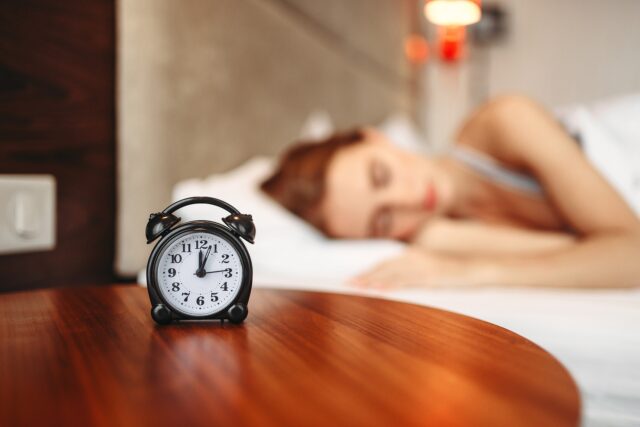Improve your Sleep Quality

by Barb Casper
One way to improve your health is to learn how to become more energetic and feel well-rested. If you cannot sleep well at night, or you put off sleep to do other things, it can add up. If you are not getting adequate rest, your health will suffer and you will be unable to engage effectively in your day-to-day activities.
Using the following tips, you will be able to get more done each day with energy and your chances of achieving restful sleep will improve:
Turn Your Bedroom into A Sanctuary
You want to create a relaxing place that promotes your ability to sleep. Your bedroom should make you feel calm the moment you enter it. Spend the money on a good mattress, comfortable bedding, blackout blinds, and make sure the temperature is conducive to sleep. If needed, get a sound machine to block out sounds.
Create a Sleepy Bedtime Routine
Create a routine to promote sleep prior to bedtime. Practice relaxation/meditation exercises prior to heading to bed. Take a warm bath (the rise and then fall in body temperature promotes relaxation), wash your face, brush your teeth, drink some water and then get in the bed.
Go to Bed and Get Up at Relatively the Same Time Each Day
This is a huge key to being able to sleep at night. It’s especially essential for anyone who suffers from insomnia. Eventually, your body will grow accustomed to the schedule and you will sleep better.
Should You Nap?
Many people make naps a regular part of their day. However, if you are having trouble falling or staying asleep, napping too late may be the culprit. If you must nap, try to take your nap earlier in the day. Set your alarm and keep your naps short (less than an hour).
Eat Right
Your digestion or lack thereof plays into your ability to sleep well. Eat a healthy diet.
Don’t Eat Late at Night
A recipe for insomnia is eating late at night or eating the wrong foods prior to bedtime. Avoid greasy, sugary and spicy foods at this time. The last thing you want to do is divert your body’s energy toward your digestive system which may result in your inability to reach a state of deep and restful sleep. Avoid eating two to three hours before bedtime to improve restful sleep.
Stay Hydrated and Balance Your Fluid Intake
Drink plenty of filtered tap water to stay hydrated during the daytime. After dinner, allow yourself enough fluid to avoid waking up thirsty. On the other hand, decrease your intake to avoid getting up often for trips to the bathroom.
Avoid Caffeine
Caffeinated is a stimulant that can keep you awake and decrease your quality of sleep. For better sleep avoid caffeine for four to six hours before bedtime. Caffeine can be found in coffee, tea, chocolate, colas, cold medicines, energy drinks, and some breath fresheners.
Exercise Early
Exercise promotes restful sleep, can help you fall asleep faster and sleep more soundly—as long as it’s done at the right time. Finish exercising at least three hours before bed or work out earlier in the day.
Moderation is also a key element. Pushing too hard for too long can backfire. An excessive workout can cause physical exhaustion and pain resulting in less sleep.

Turn Off All Screens
The best rule of thumb would be to remove all electronics from your bedroom. If you must have these items in your bedroom, turn off your TV, computer, laptop, smart phone, and/or tablet a couple hours before bedtime. The light emitted from all screens messes with your circadian rhythm.
You may also choose to read. If you choose to read digitally on a book reader make sure you’re using the INK technology to avoid the blue lights. If you care to listen to music, choose your music carefully. Some music can be very distracting and may not allow you to enter deep REM sleep.
Leave Your Work at Your Workplace
Keep all work materials out of your bedroom. This helps avoid stimulating your mind or causing unnecessary stress prior to bedtime. You want to avoid secreting the stress hormone cortisol which causes an increase in alertness versus promoting relaxation.
Do You Struggle to Go to Sleep?
Go to sleep when you are truly tired. If you struggle from more than 20 minutes trying to fall sleep or find yourself staring at the clock, get out of bed, go to another room, and do something relaxing until you are tired enough to fall asleep. Tossing and turning for hours, or staring at a clock face watching each minute pass, simply escalates your level of frustration and tension.
Please note: Not all sleep problems are improved through good sleep hygiene. If your sleep difficulties don’t improve, please schedule a consultation with our naturopathic doctor. Your sleep difficulties may signify the presence of an underlying issue.
